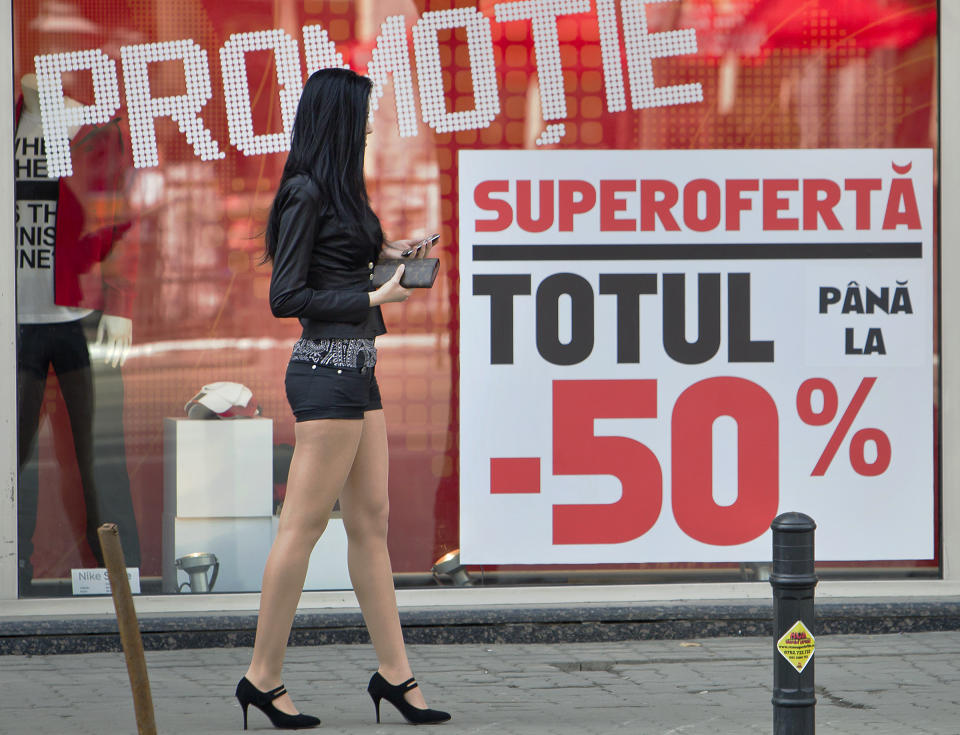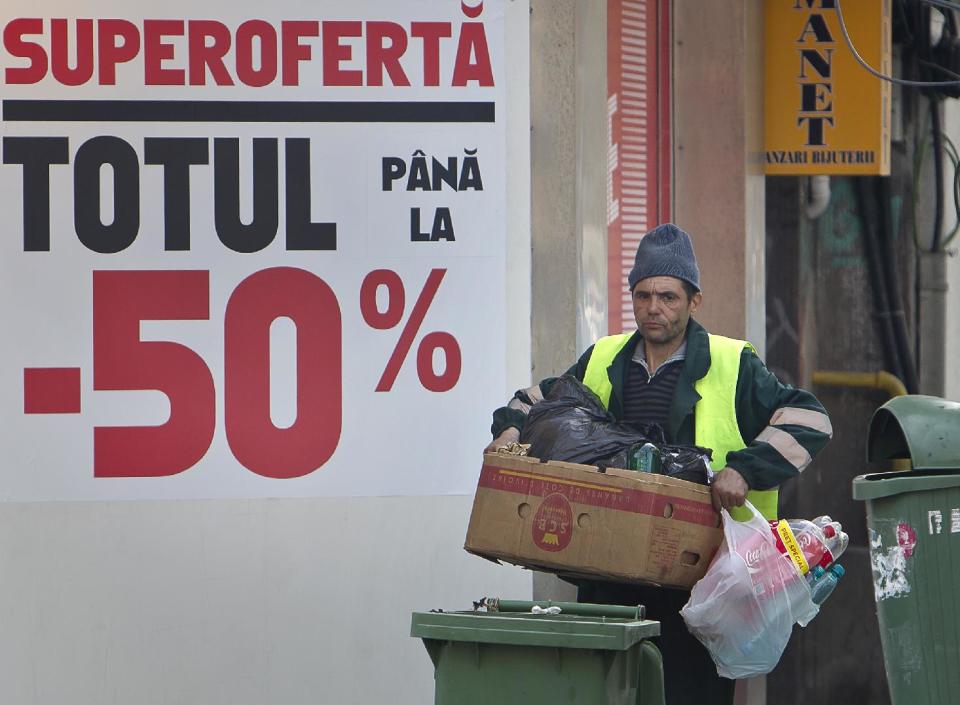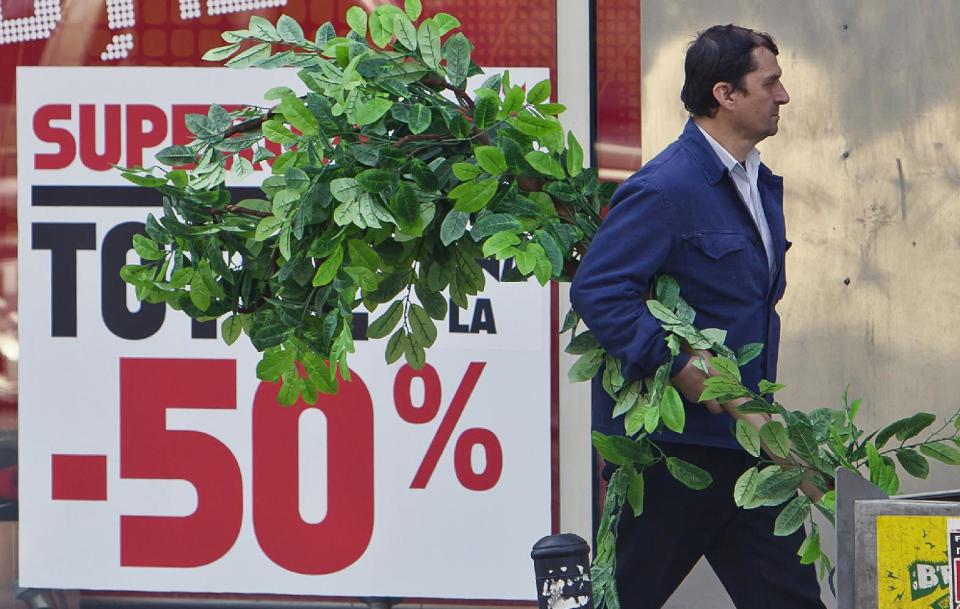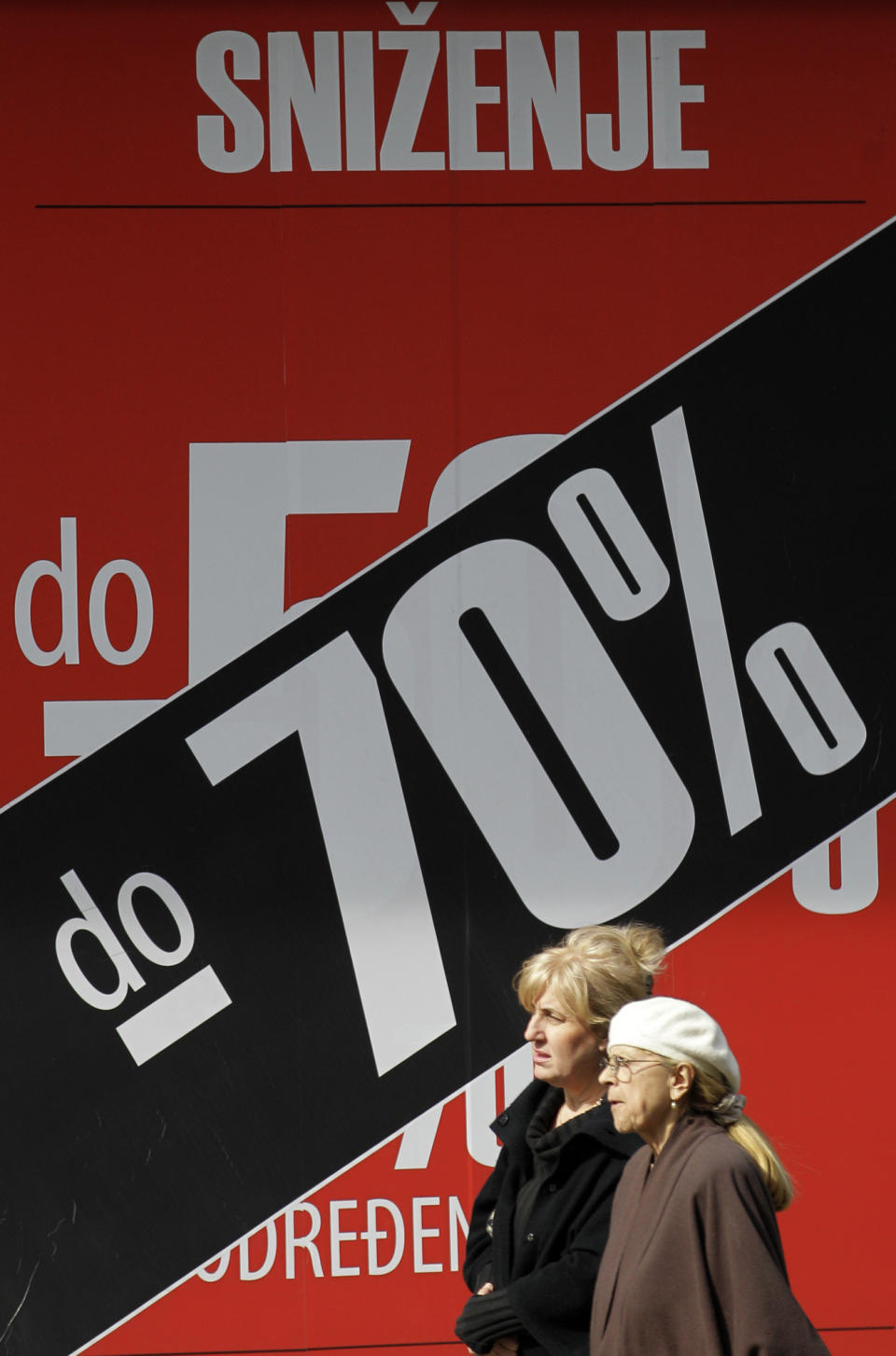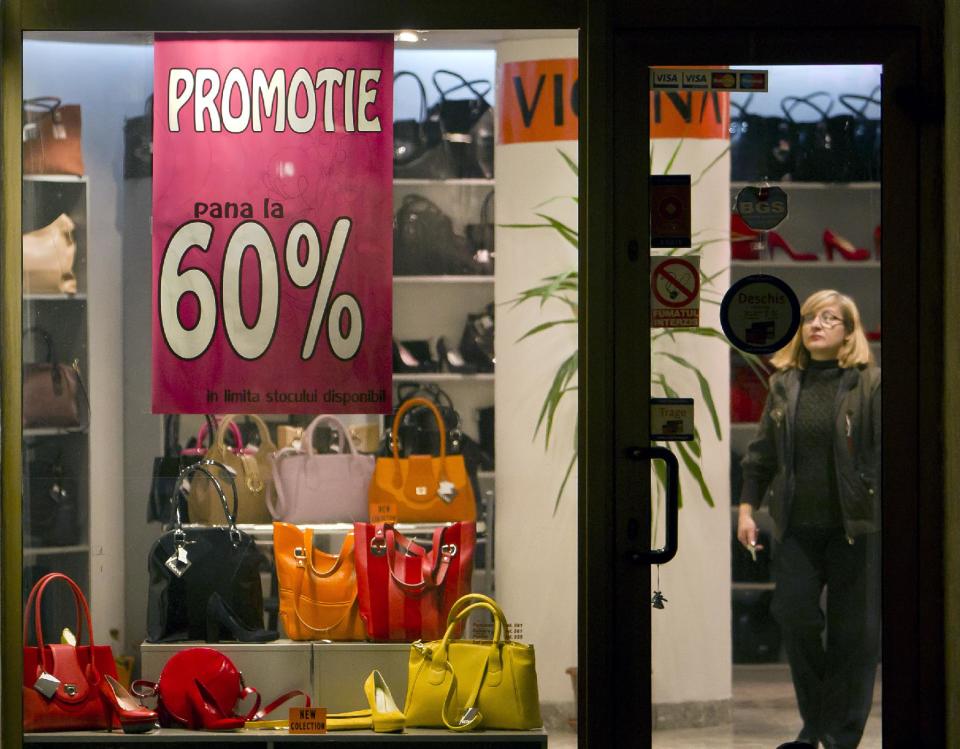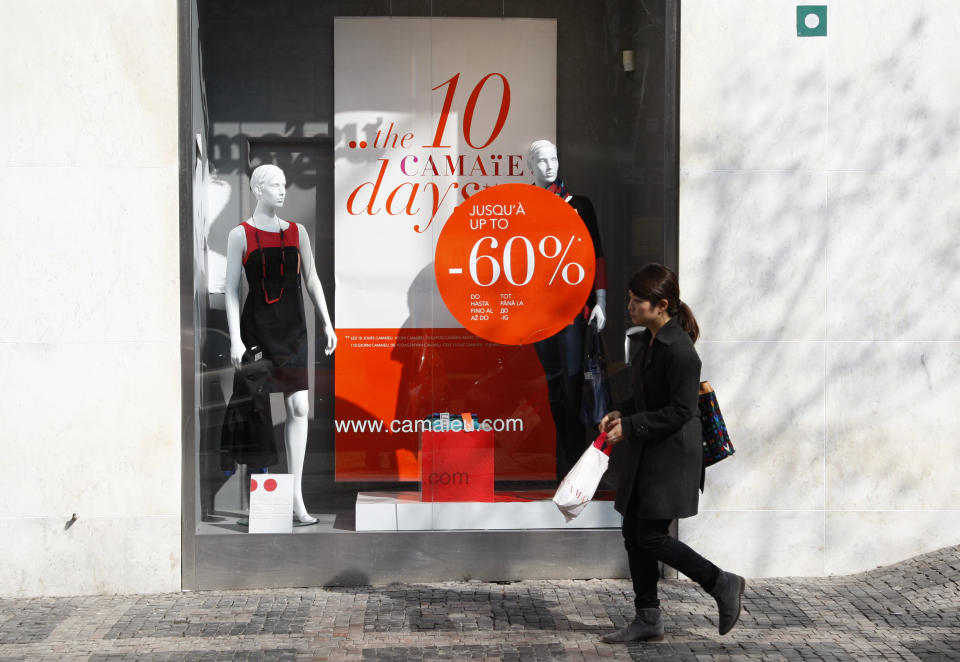Shops slash prices in East Europe to fight gloom
BUCHAREST, Romania (AP) — After months of the coldest weather in living memory, spring has finally arrived in Prague, Belgrade and Bucharest. But the gloom has not lifted from the shopping districts, where retailers are extending winter sales in a desperate attempt to attract consumers hurt by an economic downturn.
Eastern Europe has been hit hard by the financial turmoil generated by the debt crisis in the nearby euro countries. Consumers are pinched on all sides by austerity reforms like tax increases and pension cuts and unemployment is on the rise.
Many households are also recovering from huge heating bills, the legacy of a vicious end to a winter which has hampered business and delayed the introduction of spring stock to many shops by weeks.
To keep business flowing and sell their wares, retailers across the region have had to continue price discounts.
"The traditional January sales have extended throughout February and first half of March," said Maja Simic, manager at the Time Out clothing store in downtown Belgrade, Serbia. "We now have a final sale where we reduced prices for some items by 70 percent."
Luxury items are being discounted most aggressively, as they are the toughest to sell in times of tight budgets. A shopper in Bucharest will find 60 percent discounts on bridal gowns and half price on designer sunglasses. In Prague, there are 90 percent reductions on ski equipment.
Foreign luxury retailers continue to invest in the region, but they represent a small percentage of the overall market and target the rich elite with money to spend in good times and bad.
In Bucharest, a Valentino flagship store has opened in the JW Marriott Hotel shopping gallery, while Burberry will open their shop in 2012 in the Radisson Hotel.
Dorothy Constantin, managing partner for High Fashion Concept in Bucharest, said the economic downturn was hitting the luxury sector as shoppers seeking out bargains, while overheads such as rent, remain high. The lack of parking spaces and restaurants further discourages the well-heeled customers.
"Our sales are falling, people are buying on impulse or they prefer to buy abroad because it is a more pleasant shopping experience," she said.
Early indicators suggest the heavy discounting is increasing footfall — the Czech Republic, for example, saw a 1.3 percent increase in consumer spending in January. But such gains will be difficult to sustain and likely came at the cost of lower sale average prices.
So while a moneyed shopper might find great bargains, the shops will keep on struggling, as will many of the mid- and low-range income households they are trying to attract.
Part of the problem is that governments trying to heal their public finances are increasing sales tax. Hungary and Romania have the highest such taxes in the European Union at 27 and 24 percent, respectively, and the Czechs plan to raise theirs soon.
The result is that retail business has slumped. In Romania, sales were down 4.5 percent during the first 10 months of 2011 compared with the previous year.
On the consumer side, incomes are still low and purchasing power is weakened as many local currencies drop to reflect the poor economic outlook and living costs — namely heating, transportation and food — increase.
Further complicating the retail market in some countries, such as Serbia, are longer-term structural factors such as a lack of competition, with a handful of powerful companies dominating the sector and keeping prices high.
That means that while the discounting may buy the retailers some time, the broader trend for consumer spending is weak.
On Bucharest's upscale Calea Victoriei, shopping has been in decline for the past three years, according to several store managers.
"People used to come every season ... but they have abandoned this habit ... and even the wealthier ones buy only once a year," said Nina Gheorgon, 60, the manager of a boutique that sells handmade shoes and bags. "The main reason is that the cost of living has gone up and under this avalanche of price rises, people refrain from buying as much as before."
In Hungary, many households are struggling with foreign-currency loans, usually mortgages, that became hugely popular in the years before the global financial crisis.
The one bright retail spot in the region, even during the global crisis, has been Poland. The economy there grew a brisk 4.3 percent last year and is expected to expand another 2.5 percent this year. Wages have also been growing, giving people more money to spend.
The European football championship, to be held this summer, will be a key boost for the country as foreigners swarm its biggest cities.
The investment and "feel-good factor" generated by such big events tend to increase sales for a time, economists say. But the rest of the region is not holding its breath.
"The retail trend remains anemic," said Gabor Ambrus, analyst at 4Cast in London. "Though it is not contracting any more, it is likely to stay depressed under the burden of economic weakness and fiscal consolidation."
___
Jovana Gec and Ivana Bzganovic in Belgrade, Serbia, Karel Janicek and Adam Pemble in Prague, the Czech Republic, Pablo Gorondi in Budapest, Hungary, Nicolae Dumitrache and Alina Wolfe Murray in Bucharest, Romania and Vanessa Gera in Warsaw, Poland contributed to this report.


